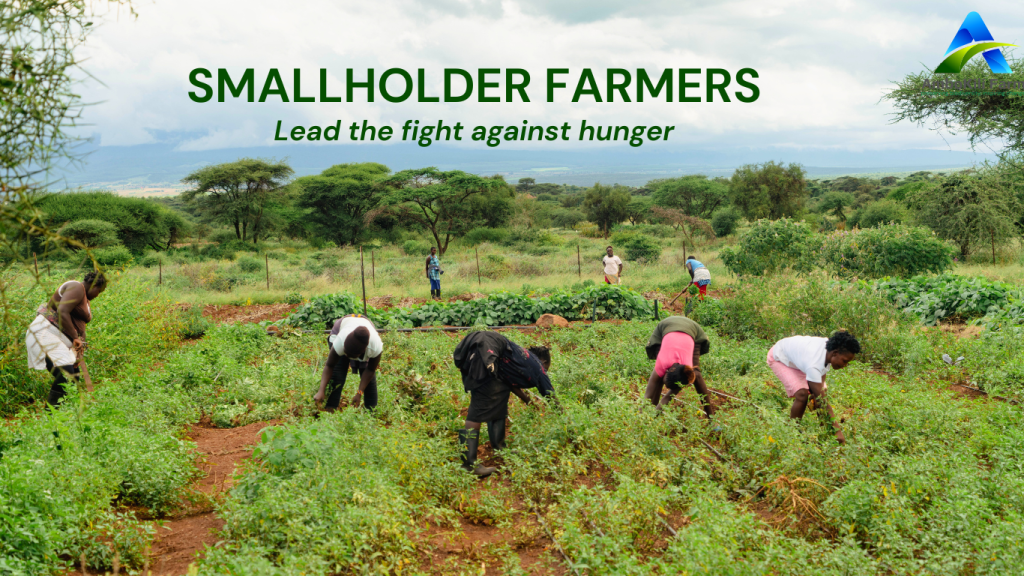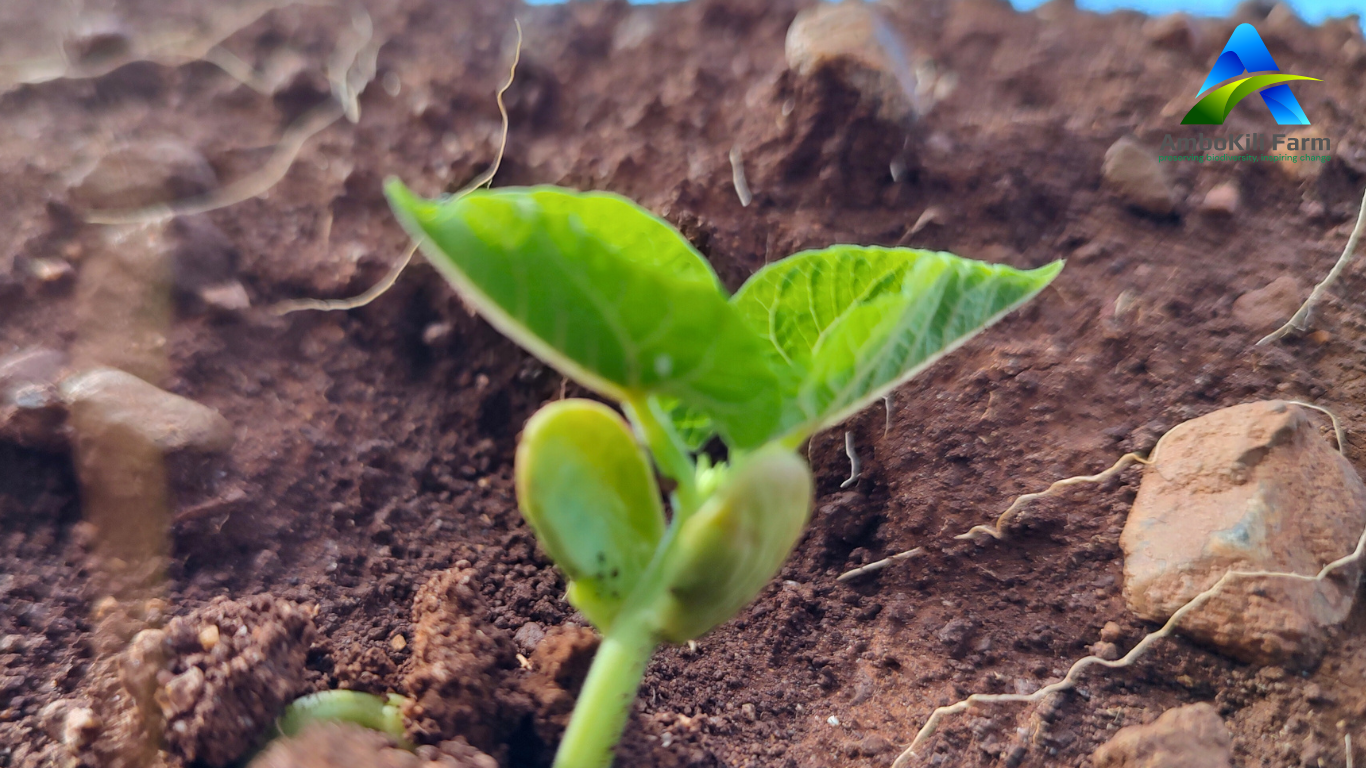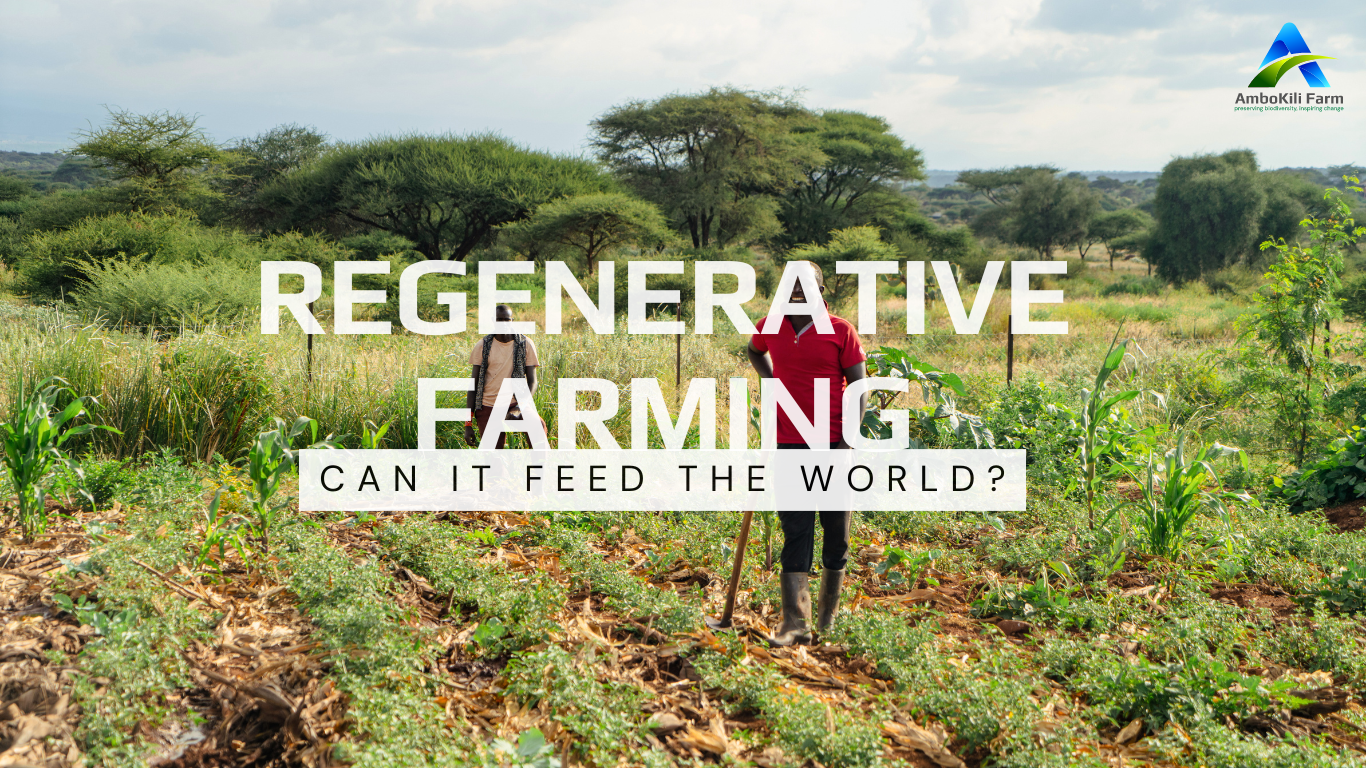
In a world where over 733 million people are facing hunger, the question we must ask ourselves is: can smallholder farmers truly lead the fight against hunger? The future of global food and nutritional security may very well rest in the hands of these often-overlooked stewards of the land. Why?
A Global Crisis: Hunger and Malnutrition by the Numbers
Hunger isn’t just a distant issue. It’s a daily reality for nearly 9.2% of the global population. Worse still, malnutrition, in all its forms, affects one in three people globally. But the question isn’t whether we have enough food to feed the world. We do. The real issue lies in the inefficiencies of our food systems, climate change, and a lack of access to resources for those who need them most—smallholder farmers.
The Food and Agriculture Organization (FAO) reports that food production must increase by 70% by 2050 to meet the dietary needs of the world’s population. But how can we achieve this without destroying our planet? The answer lies not in industrial agriculture but in empowering smallholder farmers to adopt sustainable practices.
The Power of Smallholder Farmers: Giants in the Fight Against Hunger
Smallholder farmers make up more than 80% of the world’s farms, and yet they are often excluded from major agricultural conversations. Imagine the ripple effect if these farmers, cultivating less than 2 hectares of land each, were empowered with the tools, knowledge, and resources to sustainably boost their production. It’s no exaggeration to say that smallholder farmers hold the key to feeding the world’s ever-growing population.
Their contributions are essential, not only for local economies but for global food security. When empowered through education, access to technology, and financial support, they can produce more diverse, nutritious, and resilient crops. These crops can directly address the twin crises of hunger and malnutrition, helping to break the cycle of poverty that plagues so many rural areas.
The Role of Sustainable Agriculture in Solving Hunger
Smallholder farmers can not only help feed the world, but they can also do so sustainably. Unlike large-scale industrial farming, which often depletes soil and harms ecosystems, smallholder farms, when guided by regenerative practices, can enhance biodiversity, sequester carbon, and restore degraded lands. Imagine a future where the very farms that feed us also heal the planet.
At Ambokili Farm, we have embraced this model, working with local farmers to teach methods that are both productive and sustainable. Farmers learn how to use composting, crop rotation, and agroforestry to boost soil health and increase yields without harmful chemicals. They discover how working in harmony with nature can lead to healthier, more nutritious crops. And they see firsthand how these methods can be passed down from generation to generation, ensuring food security for years to come.
Empowerment Through Education: Ambokili Farm's Apprenticeship Model
At Ambokili Farm, we’ve seen firsthand how education can transform communities. Our farm, nestled in the semi-arid regions of Kenya, serves as both a living classroom and an incubator of ideas. Through our apprenticeship programs, we teach smallholder farmers sustainable agricultural practices that not only increase crop yields but also regenerate the land.
We show farmers how to turn the harshest terrains into thriving, biodiverse ecosystems capable of producing enough food to feed families and generate income. These methods, rooted in organic farming, help build resilience in food systems while protecting the environment. The results? Families who were once dependent on unsustainable employment or extreme conventional farming practices that were harming them, and the environment are now self-sufficient, growing enough food to meet their own needs and protecting the planet.
So, Can Smallholder Farmers Really Feed the World?
The skepticism is understandable. After all, smallholder farmers often face enormous challenges: limited access to markets, climate change, poor infrastructure, and a lack of financial support. But here’s the truth—these barriers can be broken.
If smallholder farmers had the same level of support as industrial-scale producers, their contributions could revolutionise global food systems.
Every farmer, no matter how small their plot of land, has the potential to be a part of the solution to hunger.
It’s time to start seeing them as central to the solution. By empowering these farmers with the right resources and education—just like what we do at Ambokili Farm—we can build resilient food systems that address the root causes of hunger and malnutrition.
As World Food Day approaches, we call on governments, NGOs, and donors to focus their efforts on the people who can make the biggest difference—smallholder farmers. With the right support, they can feed not only their families but entire communities. They can lead the fight against hunger.
Join Us in Empowering Farmers to End Hunger
At Ambokili Farm, we are committed to creating a world where no one goes to bed hungry. But we can’t do it alone. We invite you to join us in this mission. Whether by donating, volunteering, or sharing our work with others, your support can help empower farmers to break the cycle of hunger.
What’s next? Feeding the world isn’t just about growing more food, it’s about growing it right. Learn how we do that on our next blog.


